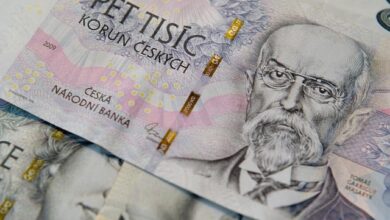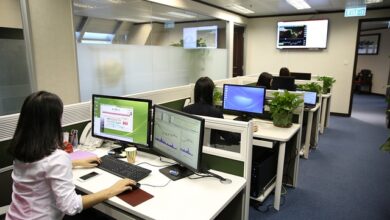Common Interview Questions in France and How to Prepare

Job interviews in France often reflect the country’s professional culture, which values formality, preparation, and a clear understanding of both technical skills and interpersonal qualities. While the specific questions may vary depending on the industry and role, there are several common themes that frequently arise during French job interviews. Below is a list of typical interview questions, along with tips on how to prepare for them effectively.
1. Tell Me About Yourself (Parlez-moi de vous)
Why It’s Asked:
This open-ended question allows the interviewer to gauge your communication skills, professionalism, and whether your background aligns with the position.
How to Answer:
- Focus on your professional journey rather than personal details.
- Highlight relevant experiences, qualifications, and achievements.
- Tailor your response to emphasize skills and accomplishments that match the job description.
Example Response:
“I have over five years of experience in digital marketing, specializing in SEO and content strategy. In my previous role at [Company Name], I led a team that increased organic traffic by 40% within a year. I’m passionate about data-driven strategies and am excited about the opportunity to contribute to your company’s growth.”
2. Why Do You Want to Work Here? (Pourquoi voulez-vous travailler ici?)
Why It’s Asked:
Employers want to ensure you’ve done your research and genuinely understand their organization’s mission, values, and goals.
How to Answer:
- Research the company thoroughly—its history, products/services, market position, and recent news.
- Explain why the company appeals to you personally and professionally.
- Connect your skills and ambitions to the company’s objectives.
Example Response:
“I admire your company’s commitment to sustainability, particularly your recent initiative to reduce carbon emissions. As someone who prioritizes environmental responsibility, I’d love to bring my project management expertise to support this goal while contributing to your innovative projects.”
3. What Are Your Strengths and Weaknesses? (Quels sont vos points forts et vos points faibles?)
Why It’s Asked:
This classic question assesses self-awareness, honesty, and your ability to improve.
How to Answer:
- For strengths, choose qualities directly related to the job and provide examples.
- For weaknesses, be honest but frame them positively by showing how you’re working to overcome them.
Example Response:
“One of my key strengths is problem-solving; I excel at analyzing complex situations and finding practical solutions. For example, I streamlined a workflow process at my last job, reducing turnaround time by 25%. As for weaknesses, I sometimes focus too much on perfection, but I’ve learned to manage this by setting realistic deadlines and prioritizing tasks effectively.”
4. Where Do You See Yourself in Five Years? (Où vous voyez-vous dans cinq ans?)
Why It’s Asked:
Employers want to see if your long-term goals align with the company’s trajectory and if you’re ambitious yet realistic.
How to Answer:
- Demonstrate ambition without appearing overly aggressive or unrealistic.
- Show that you’re committed to growing within the company.
Example Response:
“In five years, I see myself taking on more leadership responsibilities, potentially managing a team or leading strategic projects. I’m eager to grow alongside this company and contribute to its success while continuing to develop my skills in [specific area].”
5. How Do You Handle Stress or Pressure? (Comment gérez-vous le stress ou la pression?)
Why It’s Asked:
French workplaces value resilience and adaptability, especially in fast-paced industries.
How to Answer:
- Provide a concrete example of a stressful situation you successfully navigated.
- Emphasize your coping mechanisms, such as organization, delegation, or mindfulness.
Example Response:
“During a major product launch at my previous job, we faced tight deadlines and unexpected challenges. To stay calm under pressure, I created a detailed action plan, delegated tasks efficiently, and maintained open communication with the team. We delivered the project on time and exceeded client expectations.”
6. Can You Describe a Difficult Situation You Faced at Work and How You Resolved It? (Pouvez-vous décrire une situation difficile que vous avez rencontrée au travail et comment vous l’avez résolue?)
Why It’s Asked:
This behavioral question evaluates your problem-solving abilities and how you handle adversity.
How to Answer:
- Use the STAR method: Situation, Task, Action, Result.
- Be concise and focus on the positive outcome.
Example Response:
“In my previous role, our team missed a critical deadline due to miscommunication. I organized an emergency meeting to clarify roles and reassign tasks. By collaborating closely and working late hours, we completed the project just two days behind schedule, ensuring minimal impact on the client.”
7. Why Did You Leave Your Last Job? (Pourquoi avez-vous quitté votre dernier emploi?)
Why It’s Asked:
Interviewers seek to understand your motivations and ensure you left your previous role on good terms.
How to Answer:
- Stay positive and avoid criticizing past employers.
- Frame your departure as a step toward growth or new opportunities.
Example Response:
“I decided to leave my last position because I was looking for a role that offered more creative freedom and aligned with my passion for innovation. This opportunity excites me because it combines my skills with a forward-thinking company culture.”
8. How Do You Work in a Team? (Comment travaillez-vous en équipe?)
Why It’s Asked:
Teamwork is highly valued in French workplaces, so employers want to know how you collaborate with others.
How to Answer:
- Share examples of successful teamwork and highlight your communication and collaboration skills.
- Mention any leadership or mentoring roles you’ve held.
Example Response:
“I thrive in collaborative environments and believe open communication is key to success. In my last role, I coordinated cross-functional teams to complete a marketing campaign, ensuring everyone stayed aligned through regular check-ins and shared updates.”
9. What Salary Are You Expecting? (Quelle rémunération attendez-vous?)
Why It’s Asked:
Discussing salary can feel uncomfortable, but it’s standard practice in France to address compensation early in the hiring process.
How To Answer:
- Research average salaries for similar positions using resources like Glassdoor, Pôle Emploi, or local industry reports.
- Provide a range rather than a fixed number to allow flexibility.
Example Response:
“Based on my research and experience, I’m expecting a salary between €X and €Y annually. However, I’m also open to discussing additional benefits such as bonuses or professional development opportunities.”
10. Do You Have Any Questions for Us? (Avez-vous des questions pour nous?)
Why It’s Asked:
Asking thoughtful questions demonstrates interest in the company and helps you determine if the role is right for you.
How to Answer:
- Ask about the company’s future plans, team dynamics, or training opportunities.
- Avoid asking about salary or benefits unless explicitly invited.
Example Questions:
- “What does success look like in this role after six months?”
- “How would you describe the company culture here?”
- “Are there opportunities for professional development or mentorship programs?”
Additional Tips for Preparing for Interviews in France
- Dress Formally : French workplaces tend to be conservative, so dress smartly—even for startups or creative roles.
- Be Punctual : Arriving late is considered disrespectful. Aim to arrive 10–15 minutes early.
- Speak Professionally : Even if you’re fluent in French, use formal language (e.g., “vous” instead of “tu”) until invited to switch to informal terms.
- Bring Documents : Carry copies of your CV, diplomas, and references, as some companies may request these during the interview.
- Follow Up : Send a polite thank-you email within 24 hours, reiterating your enthusiasm for the role.


